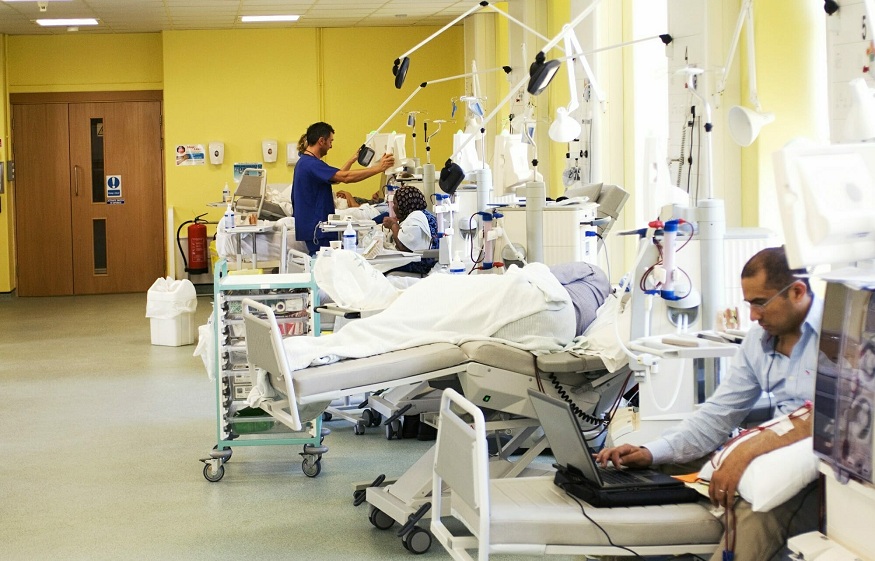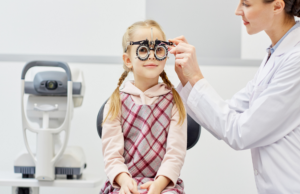
Hemodialysis Department at Samitivej Hospital
Kidney disease has been steadily increasing for the last 27 years. Globally, around 10% of the population suffer with chronic kidney disease, or CKD. The ever-increasing numbers are thought to be due to the increasing number of noncommunicable diseases, or NCDs. High blood pressure and diabetes are the 2 main contributors for the increase in sufferance.
Kidney problems can be inherited, polycystic kidney disease being the most common of these. This is where cysts form on the kidneys which can grow to an extent which causes irreparable damage to them, and can even cause kidney failure. Other inheritable diseases include,primary hyperoxaluria, cystinuria and Alport’s Syndrome.
Kidney stones are a very common complaint, often painful and which can damage the kidneys. Very often, kidney stones form due to a build up of calcium being absorbed from food. In many instances, kidney stones can be broken up with the aid of drugs. If this is not possible, they can be removed with a simple surgical procedure.
Urinary tract infections, although common and easily treated, can spread to the kidneys and cause damage. Pregnant woman can develop kidney problems as the unborn child develops in the womb. It is not uncommon for the valve between the bladder and the ureter to fail to function fully, thus allowing urine to back up to the kidneys. This is likely to cause infection, and possible kidney damage.
Substance abuse also raises the risk of damaging the kidneys. Heroin and crack cocaine can have a devesting effect on the kidneys. Prolonged use of over-the-counter drugs, pain killers in particular, may also have a damaging effect on the kidneys.
What do the Kidneys do?
Simply put, the kidneys are a filtration system. Their primary function is to filter out toxins, including drugs, in the blood, which is converted into urine which travels through to the bladder to be expelled from the body. Each kidney, weighing around 160 grams, will produce up to one and a half liters of urine a day.
The kidneys are located on either side of the spine, at the base of the ribcage. Each one having around a million nephrons. These nephrons contain tiny filtration blood vessels known as a gromulous which are attached to tubule. The tubule extracts the fluids, distributing the fluids needed by the body and expelling the remainder as urine.
As well as maintaining the correct level of bodily fluids, the kidneys also release hormones that regulate blood pressure and control the production of red blood cells. They also produce vitamin D which is vital in maintaining strong, healthy bones.
Detecting Kidney Disease
At Samitivej Hospital’s Hemodialysis Department the specialist team are highly trained and well versed in the diagnosis of kidney disease. Testing can detect the early stages of kidney disease, thus enabling early treatment which will help to abate function debilitation. With proper and early management of kidney disease a sufferer is very likely to lead a normal fulfilling life.
Initially, a simple urine protein test will be undertaken, this allows an albumin to creatinine ratio to be deduced. Too much protein in the urine may indicate damage to the kidneys. Although 1 positive test is not conclusive, so the specialist will want to confirm this with further test over several weeks.
A blood test for creatinine will also be done. The results are then calculated against other factors, including age, gender, race to the patient’s glomerular filtration rate, this is referred to as the GFR. The patient’s GFR relates to the level of kidney function.
Kidney Disease Warning Signs
As a rule, kidney disease will be found in both kidneys of a patient. Excess fluid and waste product will build up in the body if there is serious kidney damage. Very often symptoms of kidney disease are not apparent until the disease is well established and the kidneys are excessively damaged.
Anyone experiencing high blood pressure, blood in their urine, swelling of the hands, around the ankles and feet as well as puffiness around the eyes should seek professional help. Early blood and urine tests at the Samitivej Hospital Hemodialysis Department can mean the difference between successful disease management and lifelong dependence on hemodialysis.
Treating Chronic Kidney Disease
The kidneys can become damaged by disease, or they may be a defective from birth. Damaged or defective kidneys are unable to function fully and cannot remove all the toxins from the body, or they cannot sustain the rate at which this is required. Should the effective kidney function fall to around 15%, then hemodialysis will become necessary.
It should be noted that a damaged kidney cannot be repaired. However, if the problem is degenerative then medication can slow down the rate at which the kidneys function deteriorates. Many kidney patients live full lives with defective kidney function, aided by medication.
Hemodialysis for patients with CKD would normally be undertaken up to 3 times a week, with each session lasting about 4 hours. At the Hemodialysis Department of Samitivej Hospital, state of the art hemodialysis suites have been installed. These suites have been designed, not only to give the very best treatment with ultra-modern equipment, but also to be comfortable and stress free for the patient.
The center also undertakes plasmapheresis. This treatment involves the removal of the patient’s blood and circulating it through a process of filtration and separation. The red blood cells, white blood cells and platelets are retained. The fluid content of the blood, which is the plasma, is extracted and discarded.
The discarded plasma is then replaced with a fresh fluid, whose main constituent is albumin. The red and white blood cells can then be introduced to the fresh fluid and transferred back to the patient.
A kidney transplant is another option. A suitable matching donor may be living or deceased. Kidney transplants are considered to be major surgery with the procedure lasting around 4 hours.They are also the most common of all organ transplants, in 2020 alone there were almost 130,000 kidney transplants worldwide.
Kidney disease is very serious and often life threatening. Therefore, having the best specialist diagnostics and treatment is vital to maintain quality of life. The Hemodialysis Department of Samitivej Hospital is internationally renowned and treats patients from across the globe. With JCI accreditation, acknowledging the exemplary standards maintained by its team of professional specialists, Samitivej Hospitals Hemodialysis Department is second to none.



Average Rating